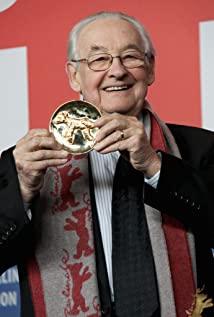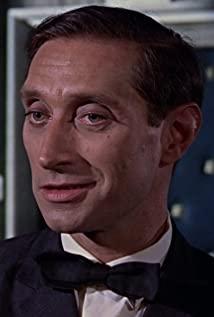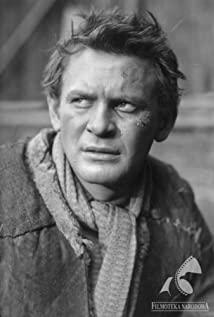In an interview, Andrei Wajda commented on the Warsaw Uprising in his camera. Of course, this 30-minute tidbit was pressed in CC's "Sewer", and was occasionally added with Chinese subtitles by profiteers. Wajda also talked with a mocking tone about the admiration that an American gave him after the "Sewer" was awarded at the Cannes Film Festival: "You guys are really great, how did you come up with this idea?"
Wajda replied. "It's not an idea, it's there." Then, he added, this is not a concept of film, but rather a reflection of actual conditions.
If the allegorical nature of modern texts is one of its most basic properties, then the multi-meaning nature of allegories will inevitably bring about different perceptions of the text itself. Modern people know very little about the Warsaw Uprising, but Wajda never forgets in the movie.
At the end of the film, Daisy took her injured and dying boyfriend Craber, and when she gave up the exit and found another exit by the river, she found that she was welded to death by an iron fence. Daisy asked her boyfriend to close her eyes and leaned on her body, telling him everything under the sun: she saw the river (the waves of the river even radiated to her face), the grass, and the beautiful buildings on the other side of the river. And a happy life... The natural reflection is that this is Plato's metaphor of the cave, but Vaida smiled and did not answer.
He said: "This is something only the Poles can understand." The other side of the river was already captured by the Soviet Red Army. But for political purposes, the Soviets allowed the Poles to bleed on the river. "Friends are on the river." There, but they won't come." Wajda said, I am suspicious, the word friend should be in quotation marks. Even so, this sentence is still rich in meaning, and it seems to be: Even if you see the sun, how come out of the hands of the fascists, and then into the hands of the dictator, freedom is still absent.
Looking at it now, the political background outside of "The Sewer" has faded away. We are not quite able to distinguish the Soviet Union from Russia, and we have forgotten many people and events that were once tragic. As depicted in "Night and Fog", daily life has replaced history, and the traces of massacre have been gradually smoothed out by time. However, the text itself has power beyond time.
We found that although it is the focus of the title and the whole film, both are "sewers", but in fact, the time outside the sewers is very scene, and it takes up nearly half. In the space on the ground, the lens is relatively open, there is no lack of panoramic views of large scenes, and the performance of the characters is mainly panoramic and half-length mid-range. But after entering the underground passage, the character's performance becomes mainly close-up and close-up, and the narrowness of the environment is all out. According to the general structural analysis, we can treat the ground/underground as a set of opposing structures. Due to the extensive associations brought about by Plato’s cave metaphor, we generally think that above ground, light, truth, normality, etc. are the same concepts, while underground, darkness, deception, distortion, etc., are another set of relative concepts. . However, in "The Sewer", subtle changes have taken place. Perhaps the dark sewer can only realize the conditions for the truth to appear. Therefore, we have seen the truth of all kinds of things in the originally pure team of comrades-in-arms.
Each of the three clues underground has its own theme (Wajda said this is not a theme).
The team led by Captain Chadela is the relationship between leader and being led. In the end, this clue completed the theme of betrayal. We discovered with shame that Sergeant Captain Britt deceived the captain and left the weak team behind. Therefore, they failed to find an exit. Opposite the graffiti of "I love Jackie", it was the sign of the exit of "Chavisi". Finally, one was killed by a grenade at the exit, one was shot and killed after going out, and the other was shot again. Go back to the sewer and leave a desolate gesture in the world: they get salvation by not being rescued.
Daisy took her badly injured boyfriend Craber, and got separated at the beginning. This is the theme of a group of rescuers and rescued ones. Here, the strong woman (her story is longer than the sewers) eventually did not become the savior, but lost everything she had close to the light. This theme shows a cave that cannot be returned after approaching the truth.
The last clue is the subject of deception. The young girl Harinka, the deputy captain Lieutenant Wise who she thinks she loves deeply, and the lonely musician. This is a group of characters, each has its shortcomings, but there is hope to "make up". But in the end, the musician was driven crazy by the "music gradually growing in her heart"; the girl found out that the deputy captain was married and committed suicide in despair; and her heart was filled with a sense of failure, and she needed wine to run against the cowardly cowardly captain Wise. However, after crawling out of the hospital, he fell directly into the hands of the Nazis. The director must have other intentions, otherwise, in the end, why did the German officer ask him to hand over the wedding ring before shooting Wise?
In the tidbits, Wajda relished his short introduction at the beginning of the film, because he pointed out that this is the last days of these people, so it can enhance the sense of tragedy and attract the audience. But I really don't think this is a very clever idea. In addition, there are a few small tidbits from the tidbits: the scene at the beginning of the film was specially built for the film, but at the end (where the captain and clerk climbed out), it was the ruins of the old city of Warsaw at that time. In the night scene that began to move to the sewer, real guns and bullets were used! Also, before entering the sewers, at the last street fortress, the kid who has been cleaning his boots is super cool!
View more about Kanal reviews










